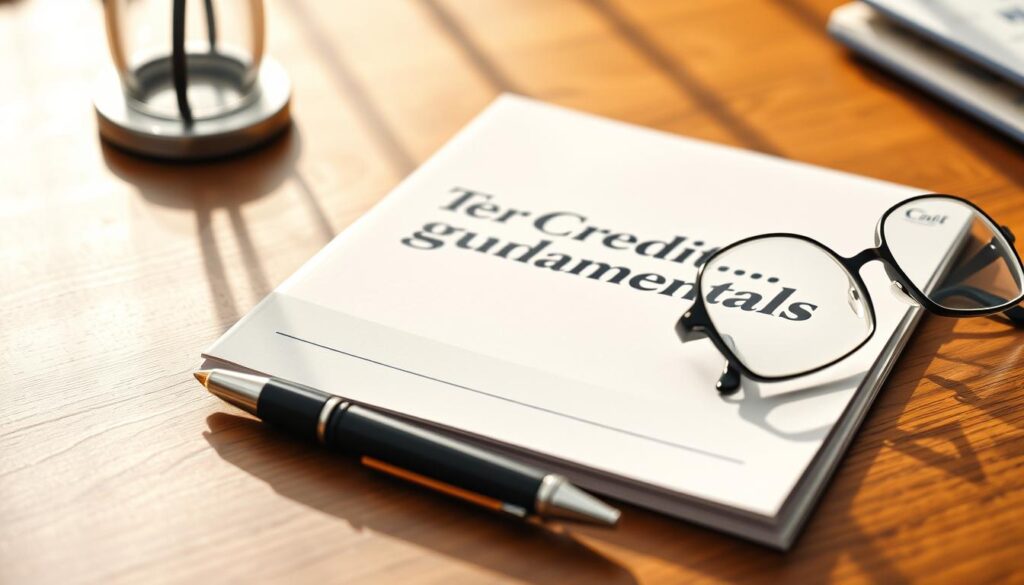Hey there! I’m Zara, and I’m 12 years old just like some of you reading this. I started Assetsforkids because I realized that understanding money stuff early can really help us when we grow up.
Today, I want to talk about something super important – borrowing money! I know it might sound boring or scary, but trust me, learning about credit basics for teens now will make your future so much easier.
Think of credit like borrowing your friend’s video game. You get to play it now, but you have to give it back later. The only difference is that with real money borrowing, you usually have to pay a little extra called interest.
Here’s something that might surprise you: according to StatsCan data, for every $1 of household income, the average Canadian has $1.73 in debt. That’s why building credit early and understanding teens and credit scores is so important for our generation.
I’ll break down everything you need to know about teen financial literacy in a way that actually makes sense!
What Is Credit and Why Should I Care About It?
Credit might seem like something for grown-ups, but it’s really important for kids to learn about. I’m Zara, and I’m here to explain what is credit in a way that’s easy for kids to understand.
Think of credit like borrowing your friend’s bike. You get to use it now, but you have to give it back later. Credit is similar, but instead of a bike, it’s money from a bank or credit card company. You can buy something today and pay for it over time.
Here’s where it gets interesting – when you borrow money, you usually have to pay back a little extra. This extra money is called interest. It’s like a rental fee for using someone else’s money. If you borrowed $40 from your big sister to buy that new video game, she might ask for $45 back next month. That extra $5 is interest!

Now you might wonder why credit importance for kids matters when you can’t even get a credit card yet. Well, here’s the cool part – understanding these concepts now gives you superpowers for later! When you turn 18, you’ll already know how credit works while your friends are totally confused.
There’s also something called a credit score – it’s like a report card that shows how good you are at paying back borrowed money. This three-digit number ranges from 300 to 900. The higher your score, the easier it becomes to borrow money for big things like cars, apartments, or college.
Adults who don’t understand credit often get into serious trouble. They end up owing way more money than they originally borrowed! But since you’re getting this teen credit education early, you’ll be way ahead of the game. You’ll know how to use credit as a helpful tool instead of falling into expensive traps.
Learning about credit now is like getting a head start in a race. While other teens will struggle with these concepts later, you’ll already be a credit expert!
Building Credit Basics Every Teen Should Understand
Let’s talk about the credit building basics for teens. Building credit is like leveling up in a game. You start at zero with no credit history.
As you make smart money choices, you level up! A credit report is created for you when you turn 18. This report shows how you handle borrowed money.
Every time you borrow and pay back on time, you get points. But, being late or borrowing too much means losing points.

Your credit score is like a final grade. It’s a number from 300 to 900. The higher your score, the better! A score above 660 is good, says Equifax Canada.
Here’s something cool about teen credit fundamentals. You can start building credit before 18. Your parents can add you to their credit card.
This lets you have a card with your name on it. But, they pay the bill. If they use it wisely, it helps build your credit history for teens before you’re 18!
Think of credit building like caring for a pet. You must feed it by making payments on time. You also need to give it exercise by using credit sometimes.
Most importantly, keep it healthy by not borrowing too much. If you take good care of your “credit pet,” it will grow strong. It will help you when you need it most.
Learning these basics early is great. You have years to practice. You can make small mistakes before they matter a lot. It’s like learning to ride a bike in a safe place before busy streets!
Starting early gives you a big advantage. By the time you need a car or an apartment, you’ll have a solid foundation.
Smart Ways to Start Building Credit Early
Let me share some awesome ways to get ahead with building credit! You can’t get your own credit card until you’re 18. But, there are smart credit strategies that can help you start early.
One cool trick is becoming an authorized user on your parents’ credit card. It’s like being a co-pilot before you learn to drive! Your parents add your name to their account, and you get your own card. They’re still responsible for payments, but their good credit habits can help build your credit score.
But, make sure your parents are really good with their credit first. If they mess up, it could hurt your score too! This is one of the best teen credit tips I can give you.
Another smart move is opening a checking and savings account at a bank. This doesn’t directly build credit, but it shows banks you’re responsible with money. It’s like proving you can take care of a goldfish before getting a dog!
When you turn 18, you’ll have some great options for early credit building. Student credit cards are made just for people new to credit. They usually have lower limits like $200-$500, which is actually perfect because it’s harder to get into big trouble.
Secured credit cards are another option. You put down your own money as a safety deposit, and that becomes your credit limit. If you put down $200, your limit is $200.
Here’s a super important rule I learned: always keep your balance below 35% of your limit. So if your limit is $300, try not to owe more than about $100 at any time. This shows lenders you’re not desperate for money and can handle credit responsibly.
The key to all these smart credit strategies is starting small and proving you can handle it. Build trust first, then ask for more later!
Credit Mistakes That Can Hurt Your Future
I want to warn you about big credit mistakes teens make. These mistakes can hurt your future in big ways. They might seem small now, but they can cause big problems later.
The worst mistake is missing payments. When you borrow money, you promise to pay it back on time. If you don’t, it really hurts your credit score. Even one late payment can lower your score for months!
Another huge mistake is maxing out your credit cards. Always keep your balance under 35% of your limit. Using all your credit limit shows lenders you don’t control your spending well. It’s like eating all your Halloween candy in one night!
Payday loans are the worst choice when you need money fast. They charge very high interest rates – sometimes over 400%! If you borrow $100, you might pay back $500 or more. That’s a financial trap that’s super hard to escape.
Buying things you can’t afford is another common mistake. Credit cards aren’t free money – they’re borrowed money with interest. If you buy $200 shoes and only pay the minimum each month, those shoes might cost you $300 or more!
The scariest part about teen financial mistakes is how long they follow you around. Bad credit makes it harder to rent apartments, get phone plans, or even land certain jobs when you’re older.
Avoiding credit problems starts with understanding these mistakes now. Once you know what not to do, you can build great credit instead of destroying it. Your future self will thank you for being smart about money today!
Taking Your First Steps Toward Financial Success
I’m excited you’ve made it this far in learning about credit! You’re learning things most kids your age don’t even think about. You’re already ahead of the game.
Good credit scores open doors you might not expect. They help young adults get better rates on loans and credit cards. Many employers check credit reports before hiring. Landlords look at credit scores when choosing tenants. Even phone companies use credit information to decide on deposits and plans.
Building credit takes time and smart habits. The financial future planning you start today makes a real difference. Every good money choice you make now prepares you for bigger financial decisions ahead. Learning about money management at your age gives you a huge advantage over other kids.
Start practicing with your allowance or birthday money right now. Save some each month. Track where your money goes. Ask your parents questions about their credit cards and bank accounts. These simple steps build the habits you’ll need for credit success.
The credit education importance becomes clear when you see how it affects everything from car loans to apartment rentals. You’re building skills that will serve you for decades. Keep learning, keep asking questions, and remember that every small step counts toward your bright financial future.